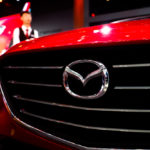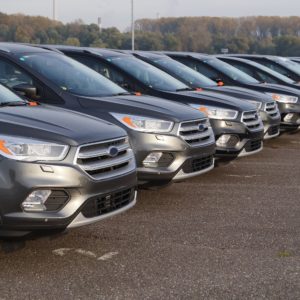Back in January, electric vehicle startup company Rivian was the talk of the town when its CEO confirmed that it had finished developing the Lincoln SUV, the automakers very first battery-electric luxury SUV.
A couple of months later, though, the project would fall victim to the effects of the coronavirus pandemic on the automotive industry and the world’s economy as a whole.
The partnership between Lincoln and Rivian is reportedly off the table and is now known as the first vehicle cancellation in North America related to the outbreak.
Automotive News was first to report about the project cancellation. However, it was The Drive that got confirmation from Amy Maust, a spokesperson for Rivian, who said, “We’re excited about the future of our partnership with Lincoln and Ford. Right now, we’re focusing on executing our existing programs.”
The decision is seen as a cost-saving move for both parties given how the entire industry is suffering from a steep decline in car sales, factory disruptions, and an unstable economy.
But it does not appear to be the end for the two companies as a Lincoln executive suggests there could still be hope in the future.
“Given the current environment, Lincoln and Rivian have decided not to pursue the development of a fully electric vehicle based on Rivian’s skateboard platform. Our strategic commitment to Lincoln, Rivian, and electrification remains unchanged and Lincoln’s future plans will include an all-electric vehicle,” the Lincoln official told The Verge.
The news arrives on the same day another article was published, claiming that the Rivian-built Lincoln EV would be called the Lincoln Mark E.
It was in 2019 when Ford and Rivian first stirred public interest with the announcement of a $500 million partnership that will see the Michigan-based startup build vehicles for Ford based on its EV “skateboard platform.” The vehicle was believed to feature an electric motor in every wheel and deliver more than 700 horsepower.
Any information provided on this Website is for informational purposes only and is not intended to replace consultation with a professional mechanic. The accuracy and timeliness of the information may change from the time of publication.

















